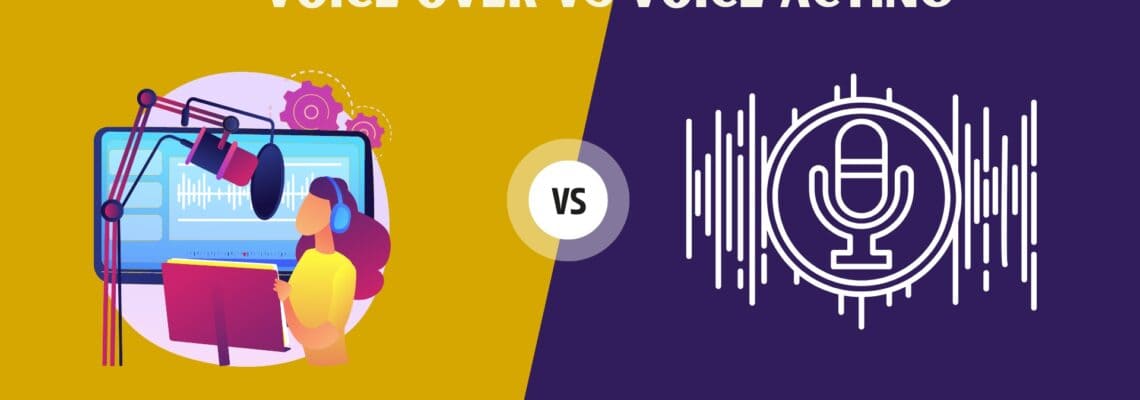
Often when we use the term voice acting, we mean voice overs. These two terms are used synonymously more often than not. And the fun fact is, that’s far from the truth. Voice over and voice acting are two absolutely different terms, one being a process while the other being a skill.
But it is undeniably a little tricky to understand the difference between the two. Hence, in today’s article, we will dig a little deeper as we solve the ultimate mystery of voice overs vs. voice acting.
Voice over vs. voice acting: What is voice over?
Let us begin this debate with an understanding of the term voice over.
Wikipedia defines voice over as “a production technique where a voice—that is not part of the narrative (non-diegetic)—is used in a radio, television production, filmmaking, theatre, or other presentations. The voice-over is read from a script and may be spoken by someone who appears elsewhere in the production or by a specialist voice actor.”
Like dubbing, voice over is also an audio production technique concerned with producing audio materials for different niches such as entertainment, marketing, radio, education, the gaming industry, etc.
The art of voice over came with Disney’s Steamboat Willie, and ever since then evolved with massive growth as witnessed in the last few years. Today, voice over is used in almost everything and has become an essential marketing tool for many.
Voice over vs. Voice acting: What is voice acting?
We have established that voice over is a process and voice acting is a skill. But what does that even mean? Well, simply defined, the voice acting is the art of doing or performing voice overs.
Voice acting is a part of the voice over process where trained individuals known as voice over artist/ voice actors/ voice talent use their voices to bring a character to life, impart information or entertain.
Unlike traditional acting, voice acting takes place behind the screen, where the voice actors can only use their voices to breathe emotions into a character. There is no use of facial expressions, gestures, or movements in voice acting; everything simply depends on how artfully the voice actor can use their voice.
Voice acting is an intricate process that takes a lot of patience and creativity. Voice over artists are individuals with an incredible talent for creating magic just by using their voices. Some of them have the ability to capture us in a way that the voice over stays ingrained in our minds for a long, long time.
To become a voice over actor, one doesn’t need any high-skill degree or qualification. Several small-term courses are available, along with competent voice-over coaches to guide you through the process.
Voice over vs. voice acting: The key differences between the two.
a) Process vs. skill: the most fundamental difference between voice over and voice acting is that while the former is a process and the latter a skill. Voice over is simply a production process in which voice acting is integral. You can acquire voice acting skills to become a part of the voice over process.
b) People involved: The voice-over process is much broader than voice acting, requiring a larger workforce. While voice acting can only be done by a single individual, voice over requires a multitude of individuals working together as a team. This may include voice actors, technicians, a director, a production crew, etc.
Voice over vs. voice acting can be a tricky subject. But as we gathered from above, there are some noticeable key differences between the two. But regardless of the differences, both are equally integral in making the other one successful, complementing each other to give birth to successful voice over productions.

